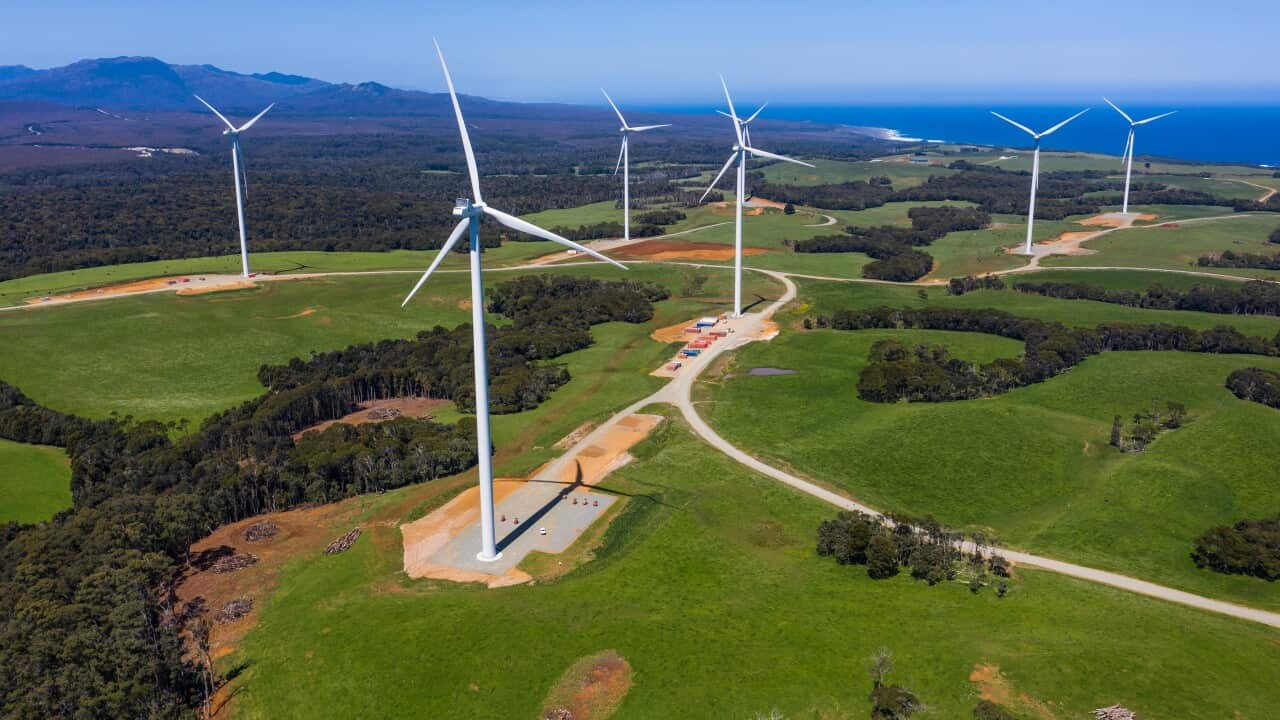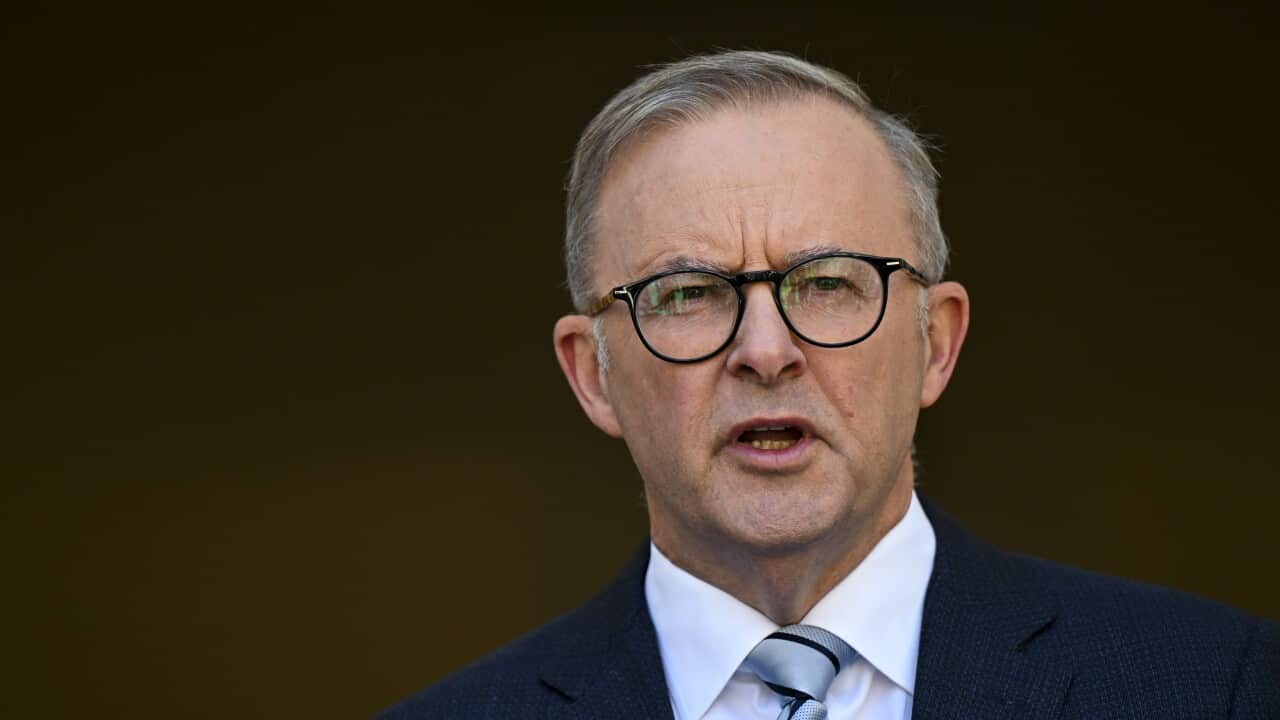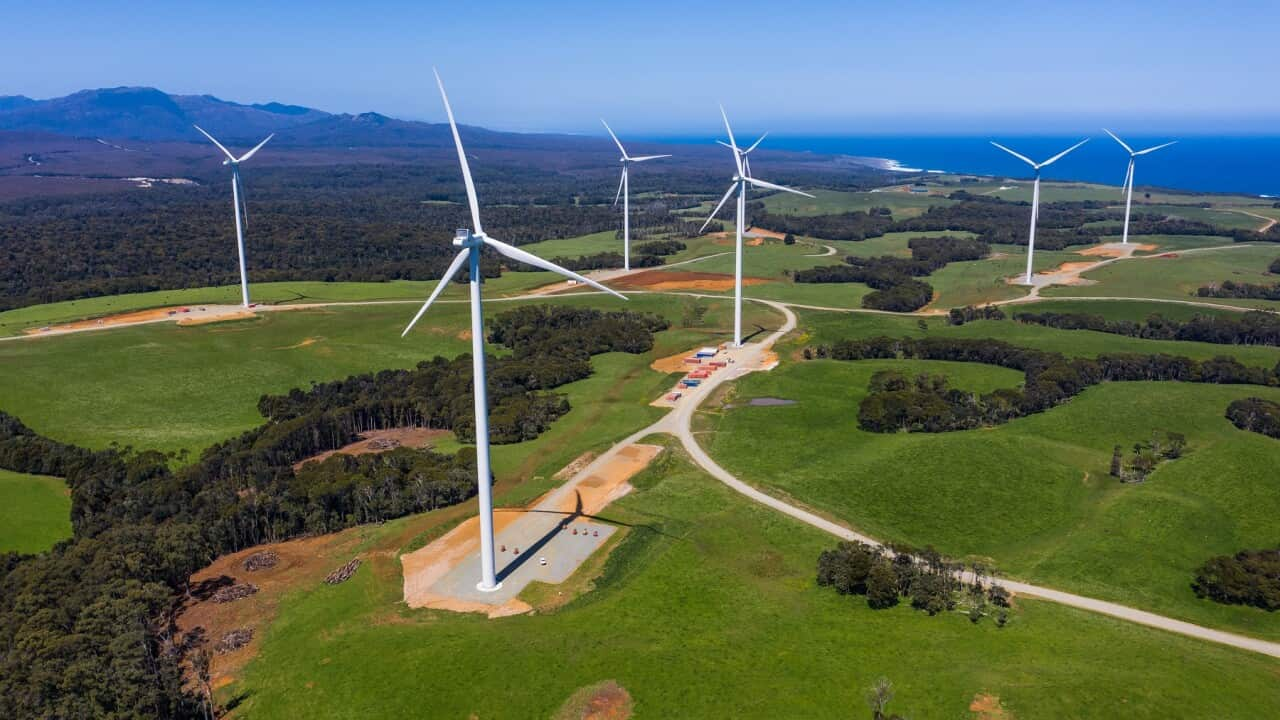The nation's energy ministers have agreed to set up a scheme to boost investment in renewables and make the power system more reliable.
The so-called Capacity Investment Mechanism - agreed at a meeting of federal, state and territory energy ministers in Brisbane on Thursday - will aim to make sure there would be a reliable supply of renewable energy, regardless of conditions in the market.
The scheme, which is set to provide $10 billion in investments for renewables, will be underwritten by the federal government.
It would pay electricity generators to have stand-by power available, with the aim to ensure an orderly transition away from fossil fuels and incentivise investment in renewable projects.
The Energy Security Board ignited the debate that led to the new deal, raising the option of a mechanism to establish a baseline energy storage target amid the shift away from coal and gas plants and turn towards renewable energy.
Presenting Australia's first "state of the climate" report last week, Mr Bowen said a capacity investment mechanism would be key to reducing power prices.
'Unleash investment in clean dispatchable energy'
Energy Minister Chris Bowen said the scheme would be a big step forward.
"It's a 'keeping the lights on' mechanism, you've heard us talk about it many, many times, it's been in the too-hard basket for a long time," he said in Brisbane, after a more than six-hour meeting with energy ministers around the country.
"This is a sensible, carefully designed mechanism, which will unleash investment in clean dispatchable energy right across Australia."
A capacity tool had been prepared for the former coalition government but was criticised as going too far in extending the life of ageing coal-fired plants.
Mr Bowen said the capacity scheme would complement existing state and territory schemes.
"We need to build more sovereign capability. We need to have plans to deal with supply chain issues," he said.
"We desperately need storage in the grid, so the criteria (for the projects) is very clear."
Queensland energy minister confident deal will lead to reduced energy prices
While further details on how the scheme will run are yet to be announced, it's estimated the first auction as part of the capacity mechanism will take place in 2023.
It's expected at least six gigawatts will be generated as part of the scheme.
Queensland Energy Minister Mick de Brenni said the progress in agreeing to the mechanism was historic.
LISTEN TO

SBS On the Money: The world looking to Australian energy assets
SBS News
10/11/202212:00
"What we have decided to do is accelerate sensible market reforms and investment in new energy storage and the grid," he said.
"This is about prices because only when the market is dominated by clean, renewable energy will we see wholesale energy prices come down permanently."
NSW minister Matt Kean said the steps were needed to make the energy grid more reliable.
"We know there are huge challenges with this transition, but a non-negotiable is ensuring that we keep the lights on during the transition and that's exactly what will happen as a result of today's decision," he said.
Warning of further power price increases
The deal comes as the consumer watchdog released a report warning of further electricity price rises as the number of retailers shrinks and global factors weigh on the energy market.
The Australian Competition and Consumer Commission said in its latest national electricity market report the typical household power bill between April and October increased by about $300 a year, or 23 per cent.
"And there are signs this will increase further," the report released on Thursday said.
The watchdog warned many households were struggling to pay for electricity, and reforms were needed.
"With prices expected to remain high, governments and regulators need to ensure policy and regulatory settings around energy affordability continue to evolve to better protect consumers," it said.
The report includes five recommendations, including monitoring of contract market trading by national electricity market participants and changes to regulated retail price setting.
A national cabinet meeting on Friday is expected to canvas options to reduce the pressures of rising energy prices on Australians.












